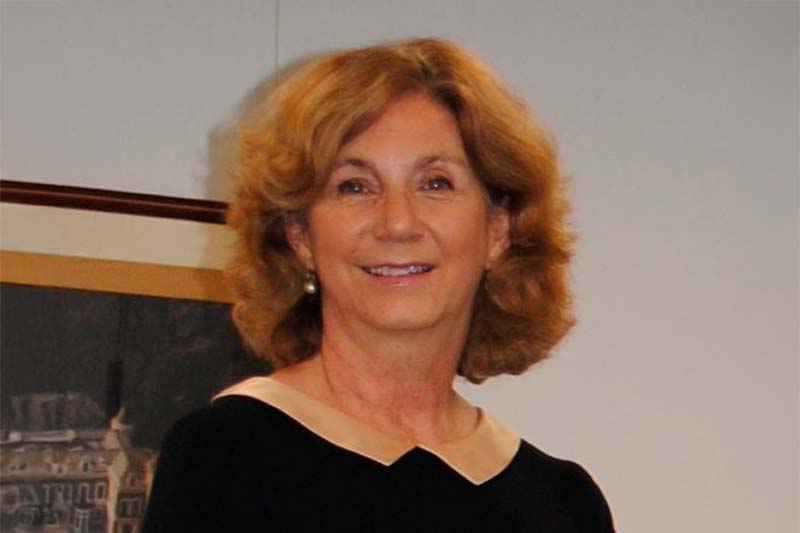
Mel Solé «Consumers today are more diverse, better informed, more demanding, and less loyal»
(Year 2019)
Dr. Mel Solé, from the Faculty of Economics and Business of the University of Barcelona, is the principal investigator of the Marketing and Market Research Group. This group focuses its activity on improving the application of marketing to the business sector by using new information and communication technologies.
How do you collaborate with companies?
At the marketing section of the department and depending on the type of company, we offer communication plans, market research, applied studies, and so on. Our first collaboration was with Mercadona. The company wanted a map of all Pakistani corner shops in Barcelona. This took one year. The fieldwork involved checking all the streets of Barcelona, neighbourhood by neighbourhood, and mapping the locations of these shops. In addition, we had to monitor products —if they were expired, how they were labelled— and if the establishments also sold bread. It was considerable work. That was our first experience of knowledge transfer. Since then, at least a couple of companies come to us every year, such as a home for the elderly that belonged to Caritas, and a logistics company interested in the application of technologies in the transport sector. Last year we worked on the Mediterranean diet and the use of sauces in food, and the Barcelona Beauty Cluster hired us to conduct a very important study on natural cosmetics in Spain. Now we are about to sign a new agreement with another Catalan cluster. These last two studies were related to consumer analysis through group dynamics, surveys, etc.
We worked with Barcelona Activa in their User Experience Lab. They had these special rooms to carry out group dynamics, but what they lacked was the methodological expertise to help explain to entrepreneurs the appropriate methodology for each case and how they could use their laboratory.
How have companies and institutions changed in recent years?
All trends are dramatically accelerated. Trends used to take time to set in, while now, through social media, you can set up a trending topic in 24 hours. In the field of politics this was very clear in the case of Podemos. People didn’t even know what Podemos was, but they managed to make themselves known in about two and a half minutes! The same thing happened with Macron’s party, En Marche! They went from not having a political party to winning an election in six months. There is a lot of information to manage, and the speed with which information can be conveyed is brutal.
Today, we could say that companies that are not present in social media do not exist. In the past there was talk of online and offline, but nowadays that makes no sense. The idea of the omnichannel approach is to reach customers through all possible platforms. There is no longer any difference between online and offline.
And what about the relationship with consumers?
Consumers are much more diverse, far better informed, and more cross-cultural than in the past, more demanding, and less faithful. Companies that invest in big data will be able to offer more segmented services and products to consumers. Glovo, for example, has just opened a restaurant in Madrid. And we could ask, Glovo? A restaurant? But of course, they had plenty of geo-location data and detected that there was a neighborhood in Madrid where they had many orders at the same time that they could not attend. So, they have opened a restaurant providing the exact kind of food they were asked for, where they can quickly serve takeaway food. This is a way of diversifying and being able to really meet the needs of the market.
Isn’t it a bit scary that companies can have so much information about us?
Well, it all depends on how much importance we attach to ethics and humanity. Technology is not bad in itself. The important thing is to set its limits. Technology is important, and in the field of healthcare, for example, it will have impressive consequences: we will have devices that will tell us if we have high blood sugar levels, and if our hearts work well. So, these technologies are really fantastic. Now we need to manage them well. One thing that is going around and makes people think is that all Silicon Valley CEOs forbid their children from using social media, laptops, and smartphones at very young ages.
What is the significance of knowledge transfer?
I think it is very important. On the one hand, it brings academic faculty closer to the business world, and this is also a great asset for students so that they can later enter the labour market. Therefore, I believe that knowledge transfer benefits students, companies, and universities. For me, this is the magic triangle, and knowledge transfer is precisely the nexus connecting these three pillars.
More about Mel Solé
The best invention
I would say there are two: the wheel and the Internet.
What would you like to see?
The cure of the diseases of our time: Alzheimer’s, cancer, and so on.
The FBG is…
…little-known within the university. I would have liked to meet them earlier and to have more information in order to be able to collaborate closely with them.

